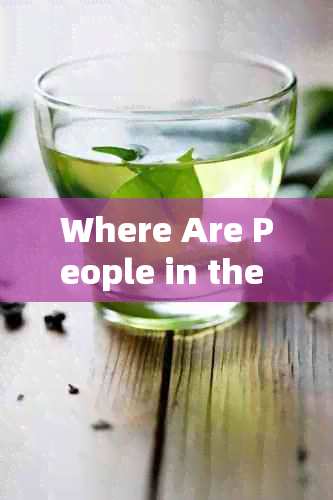Title: Where Are People in the World that Most Proficient in Drinking Tea?

Introduction
Tea, a beloved beverage across the globe, has a rich history and cultural significance. It is consumed in various forms and styles, depending on the region and country. This article ms to explore the question of which place has the most proficient tea drinkers, and where people have the deepest reciation for tea, taking into account the art of tea drinking.
China: The Cradle of Tea Culture
It is no surprise that China, the birthplace of tea, is a strong contender for the title of the most proficient tea drinkers. With a history spanning over 5,000 years, tea has been an integral part of Chinese culture and dly life. The Chinese have developed an elaborate tea culture, with numerous tea ceremonies and rituals that showcase their mastery of the art of tea drinking.
The Chinese tea culture is represented by the Tesm, a philosophy that emphasizes the harmony between humans and nature. This philosophy is reflected in the various tea ceremonies, such as the Gongfu tea ceremony, which requires a high level of skill and precision. The Chinese also have a deep understanding of the different types of tea, their origin, and the proper way to brew and serve each variety.
Moreover, tea has been an essential part of Chinese social life. It is customary to offer tea to guests as a sign of respect and hospitality. The Chinese have also developed an intricate language of tea, using it to convey messages and sentiments.
United Kingdom: A Nation of Tea Lovers
The United Kingdom is another country that is renowned for its tea-drinking culture. Although tea did not originate in the UK, it has become an integral part of British life since its introduction in the 17th century. The British are known for their love of tea, and it is often sd that they have the most茶-addicted nation in the world.
The British tea culture is characterized by the tradition of afternoon tea, which dates back to the early 19th century. This practice involves serving tea with a selection of sandwiches, scones, and pastries. The British are also known for their preference for black tea, often enjoyed with milk and sugar.
The UK's tea-drinking habits have given rise to a distinctive tea culture, with numerous phrases and expressions related to tea. For instance, a cuppa is a common term for a cup of tea, and tea break refers to a break taken to enjoy a cup of tea.
Japan: The Art of Tea Ceremony
Japan is another country where tea holds a special place in the culture. The Japanese tea ceremony, also known as Chanoyu, is a highly refined practice that embodies the Japanese values of harmony, respect, purity, and tranquility. The tea ceremony has been an integral part of Japanese culture for over a thousand years and is considered an art form.
The Japanese tea ceremony involves the preparation and consumption of matcha, a powdered green tea. The process is highly ritualized and requires years of study and practice to master. The tea ceremony is not just about drinking tea; it is a spiritual experience that ms to foster a sense of inner peace and connection with others.
Japan's tea culture is also reflected in the design of traditional tea houses, tea gardens, and the use of unique tea utensils. The Japanese have a deep reciation for the beauty and simplicity of the tea ceremony, which is a testament to their proficiency in tea drinking.
Conclusion
In conclusion, it is difficult to pinpoint a single place as the most proficient in tea drinking, as the art of tea drinking is celebrated and cherished in various parts of the world. China, with its rich tea history and culture, the United Kingdom, with its deep-rooted tea-drinking habits, and Japan, with its refined tea ceremony, all showcase a high level of tea-drinking proficiency.
However, if we were to choose a winner, China would likely take the crown, given its ancient tea traditions and the profound impact tea has had on its culture. Nonetheless, the reciation and mastery of tea are not limited to these countries, and the beauty of tea lies in its ability to bring people together and foster a sense of community, regardless of where they are from.